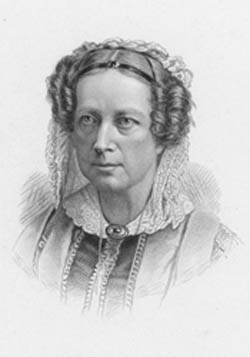

Queer Places:
1 Park Row, Frampton Cotterell, Bristol BS36 2BS, Regno Unito
Arno's Vale, Bristol BS4 3JH, UK
 Mary Carpenter (3 April 1807 – 14 June 1877) was an English educational and
social reformer. The daughter of a Unitarian minister, she founded a ragged
school and reformatories, bringing previously unavailable educational
opportunities to poor children and young offenders in Bristol.
Mary Carpenter (3 April 1807 – 14 June 1877) was an English educational and
social reformer. The daughter of a Unitarian minister, she founded a ragged
school and reformatories, bringing previously unavailable educational
opportunities to poor children and young offenders in Bristol.
She published articles and books on her work and her lobbying was instrumental in the passage of several educational acts in the mid-nineteenth century. She was the first woman to have a paper published by the Statistical Society of London.[1] She addressed many conferences and meetings and became known as one of the foremost public speakers of her time. Carpenter was active in the anti-slavery movement; she also visited India, visiting schools and prisons and working to improve female education, establish reformatory schools and improve prison conditions. In later years she visited Europe and America, carrying on her campaigns of penal and educational reform.
Carpenter publicly supported women's suffrage in her later years and also campaigned for female access to higher education. She is buried in Arnos Vale Cemetery in Bristol and has a memorial in the North transept of Bristol Cathedral.
The famous anti-vivisectionist, Frances Power Cobbe worked at the Red Lodge and lived with Mary Carpenter from 1858-9, but a turbulent relationship between the two meant that Cobbe left the school.[29]
Carpenter supported the movement for the higher education of women,[11][41] and had always supported the feminist cause but for most of her life would not do so publicly, believing that the unpopularity of the movement for women's suffrage might damage her educational and penal reforms. But she did in 1877, the year of her death, appear on a public platform in Bristol, supporting the Bristol and West of England Society for Women’s Suffrage.[38] She was invited for an interview with Queen Victoria and Florence Nightingale at Windsor Castle in 1868.[42]
Park Row, Bristol
Carpenter never married, but she did adopt a five-year-old girl, Rosanna in 1858.[43] She died, in her sleep, at the Red Lodge in June 1877 and was buried at Arnos Vale Cemetery. Her funeral cortège was half a mile long.[44] A public meeting in October 1877 raised £2,700 to be spent on her reform schools and a memorial in Bristol Cathedral.[21]
The reformatory school in Kingswood was active until 1984 and the Red Lodge Girls' Reformatory closed in 1918.[11] Carpenter's campaigns for juvenile penal reform had a major influence on the development of a more enlightened regime for dealing with young offenders. Her writings, political activism and public addresses had a major influence on correctional education in Britain, Europe, India and America and helped bring about major reforms in the 19th and 20th century.[17] However, many of the causes of youth crime apparently remain unaddressed in the early 21st century[45] and failures in contemporary youth jails have been criticised by official bodies.[46][47]
My published books: